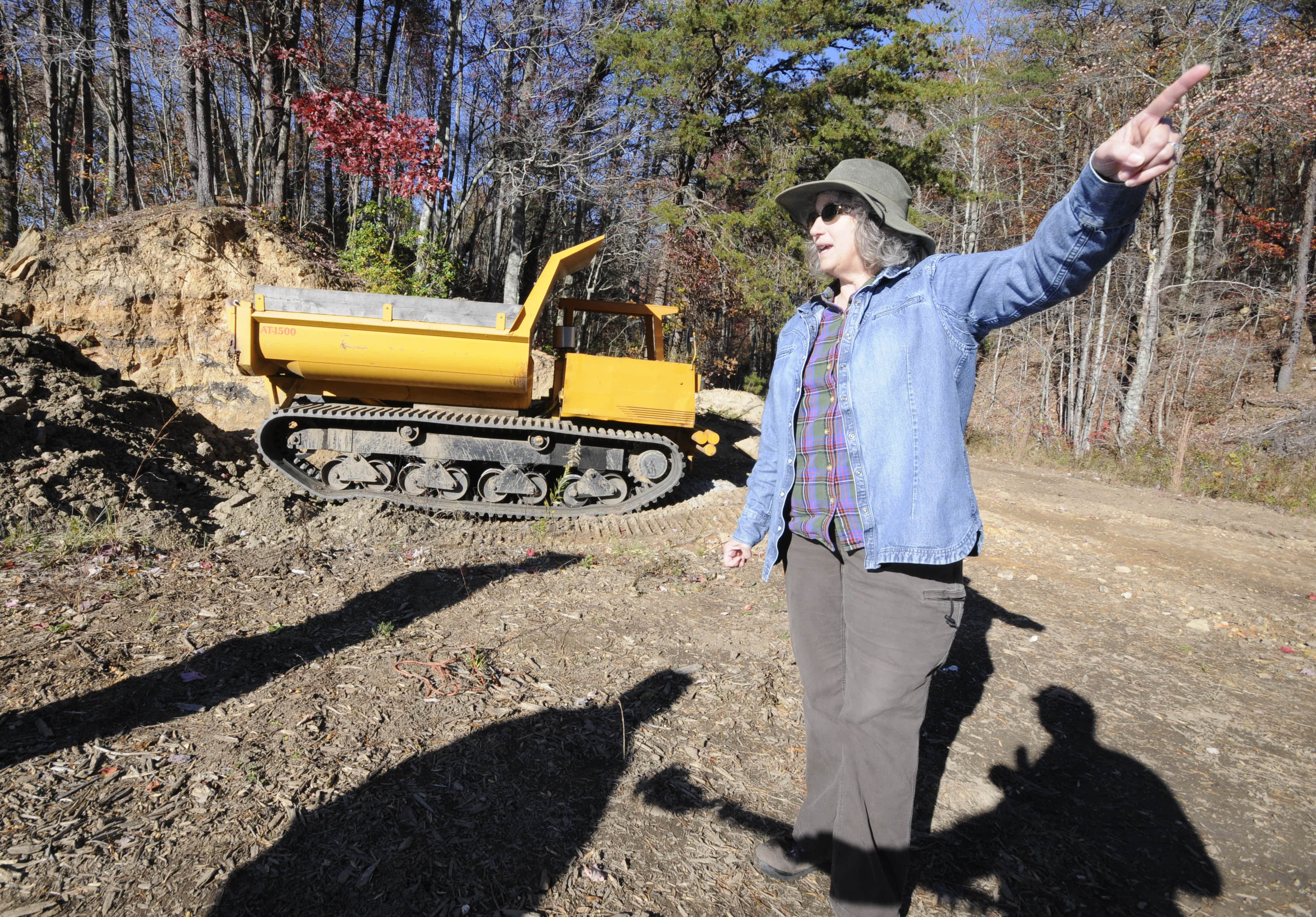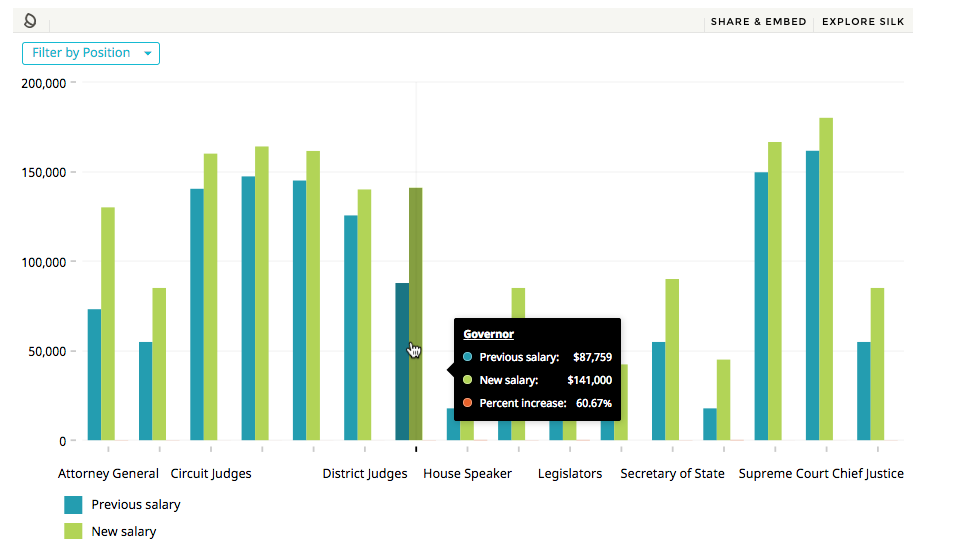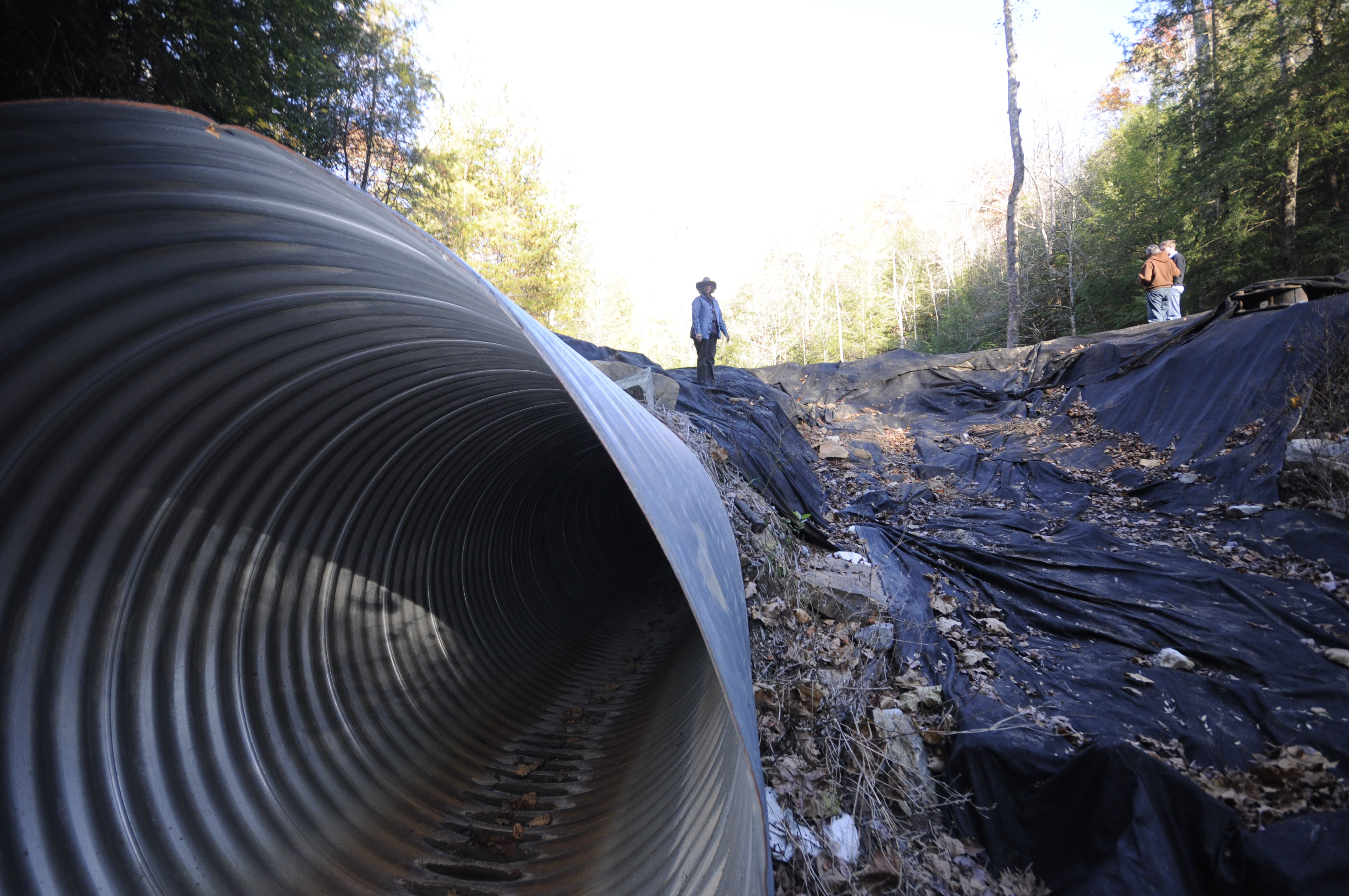RISING FAWN, Ga. - Jill Wyse was on Lookout Mountain, planning to visit her goats, when she saw the portion of Rock Creek that runs past her property. The trout stream looked dirty. But that didn't make sense: No rain had fallen; no storm had passed.
"It looked like chocolate milk," she said. "I had never seen it that muddy."
On foot, she and her boyfriend followed the creek, searching for the source of the problem. About 2 miles south, they found a bulldozer next to the stream, the water filled with rocks and logs and dirt.
She later learned this was the work of the Walker County government. Officials wanted to build a trail that crossed the creek. At the intersection, workers piled mounds of dirt over the water, where they imagined visitors would one day hike.
When she saw the construction, Wyse protested.
"There are people up here on the mountain, citizens, who have done much less damage to the creek and have been fined by the county," she said. "And yet the county -- they think they're above the law or something. They just tear it up."
Alerted by Wyse, members of Georgia's Environmental Protection Division investigated. They ruled that Walker County officials violated state law and the Department of Natural Resources' rules.
That was in March 2012. Two years later -- following two consent orders, a potential lawsuit and more than $100,000 in potential fines to Walker County taxpayers -- the pains from the project have not healed.
The EPD demanded that Walker County correct the damage to Rock Creek by Sept. 11 of this year. That project is incomplete, and officials don't believe they will finish until the end of December.
For every day the project isn't finished past deadline, the EPD can fine Walker County $1,000. As of today, that figure is at $60,000, and counting.
The project itself will cost at least another $60,000 -- $45,000 for the materials, $15,000 for the labor, public records show.
And all of that is in addition to a $65,000 fine the EPD issued Walker County in September 2012, when the initial problem was supposed to be resolved.
Wyse has her hands in all of these fines. She alerted the EPD to Walker County's original construction project. When the EPD first tried to resolve the issue, she told agency officials they had not done enough to correct the problems in Rock Creek.
She said the county needed to do more, and pay more. Wyse said a few people in town became upset with her. One resident threatened to make her goats "disappear."
But Wyse said anger toward her misses the point.
"The county cost the county money by doing this wrong," she said. "I'm just bringing it to people's attention."
Walker County Sole Commissioner Bebe Heiskell was out of town last week and did not return an email seeking comment. But public records show that she and other county officials have been passionate about creating the Durham Trail for years.
In 2007, the Georgia Department of Natural Resources awarded Walker County a $100,000 grant to build the trail. Officials planned for hikers to walk down an old railroad bed.
Where the creek and the trail intersect, construction workers rerouted the water. They adjusted the creek to run through an old culvert used while the railroad operated until 1951.
At the time, officials were optimistic about the project. They thanked Wyse for raising concerns. County Attorney Don Oliver, who oversaw the project, said he sacrificed 2,000 hours for the trail -- about 50 weeks of work.
"We have no ulterior motives and are spending tremendous public capital, private donations, and uncompensated personal sacrifice for nothing more than an attempt to provide a public recreation benefit," Oliver wrote in an email to an EPD employee in March 2012.
Privately, county officials were concerned about Wyse's allegations from the beginning. They said Wyse was only complaining because she supported Heiskell's 2012 political opponent, something Wyse denies.
"They are going to plaster Bebe with these violations if we don't make this go away," Oliver wrote in an email to himself. "Not only is this [EPD Notice of Violation] itself a huge political issue for Bebe and folks who are connected to her, 3 supposed major violations could amount to hundreds of thousands in fines, which would be a political disaster."
Publicly, Oliver and Heiskell said the construction had done the opposite of what Wyse alleged. They said they cleaned up Rock Creek.
In an email to Wyse, Oliver said the county found "hundreds of thousands of tons" of debris and silt in the water when construction began. Every week, "tons" of more sediment entered the creek because of erosion. And whenever there was a storm, "tens of thousands of tons" of more dirt muddied the water, Oliver's email said.
The environmental division did not see it that way. Bert Langley, the EPD's director of compliance, said state law required the county to form a plan with the EPD to keep sediment out of the water before working within 50 feet of Rock Creek.
For example, the EPD would have required the county to post black silt fences to keep the water clean.
"If you had done all of that," Langley said in an interview last week, "you [Walker County] wouldn't be where you are now."
Langley said the county's construction might have disrupted the water's ecosystem. The sediment could form a mud bottom on the base of the creek that kills phytoplankton and invertebrates. That, in turn, leaves the trout to starve to death.
Also, Langley said, the new route makes it impossible for the trout to swim upstream to mate. That may mean they mate with a type of trout that is downstream, which eventually can lead to diseases and genetic defects.
For her part, Heiskell has publicly maintained that the county didn't make these mistakes.
"We really don't think we did anything wrong," she told the Times Free Press in September 2012. "We didn't dump anything in the creek. We cleaned up the creek. I think people should be proud of this."
At that time, after the EPD's initial fine of $65,000, Wyse filed a petition in court saying the EPD's punishment was too weak because it didn't demand that the county to restore the creek's original flow.
So the EPD forced the county to create a new plan. The county agreed to build a bridge, so workers could fix the route of the water flow while still letting future hikers get across the creek.
According to a September 2013 document, county officials believed they could complete the pedestrian bridge in 21 weeks. More than a year later, the bridge is not installed. Philip Schofield, the project's lead engineer, said much of the delay is due to rain and snow days because the creek overflows, making it impossible to work nearby.
Langley said the EPD might cut Walker County some slack. The division might not fine the county $1,000 for every day they are past deadline.
Wyse believes EPD should use its full power against the county. For years, she sold calendars with photos of the 2-foot-long trout that ran by her property. Now, she uses only old photos.
She doesn't see the fish anymore.
"I sit and think about how many eons this creek has been down here," she said. "To have somebody just come in and pollute it that way? Just to put some trail in? ... As a citizen and a human being, I felt it was up to me to protect the creek."
Contact staff writer Tyler Jett at tjett@timesfreepress.com or 423-757-6476.




